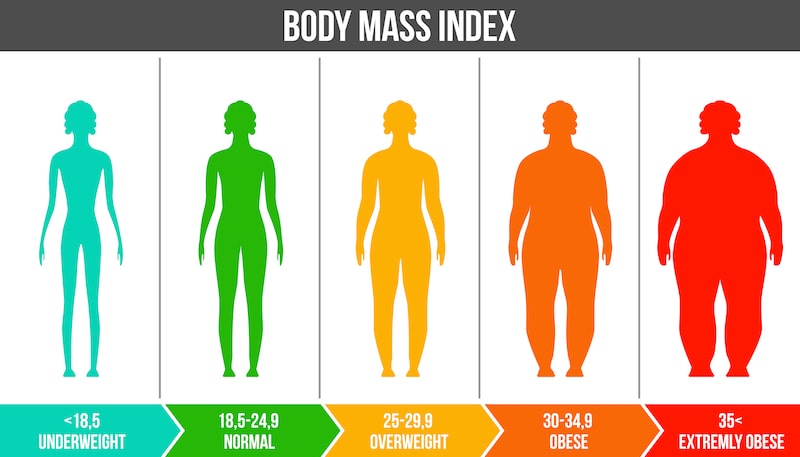Posted April 01, 2022 in Body Contouring, Plastic Surgery
3 Minute Read:
One of the most common misconceptions about plastic surgery is that these procedures can help men and women lose weight and have the figure of their dreams.
However, this is not necessarily true.
While you may lose a few pounds from removed fat and/or skin, cosmetic surgery is not intended for weight loss — at least significant weight loss. This means that you should be at or around your goal weight when you undergo your plastic surgery.

But what if you are obese? Should you consider plastic surgery if you are severely overweight?
The simple answer is “Not really.” While there are many cosmetic surgery procedures that remove stubborn fat from the body (such as liposuction surgery, tummy tuck surgery, and even more comprehensive procedures like a Mommy Makeover), these procedures aren’t able to remove enough fat from the different fatty places on the body, nor can these procedures remove fat in as effective a way as with normal diet and exercise.
Because of this, it is important that you get yourself as healthy as possible before your plastic surgery procedure.
How Important Is BMI for Your Plastic Surgery Procedure?
While many people judge their overall health on the numbers they see on their scale, your BMI (body mass index) is much more important to consider when judging how healthy and in-shape you are. Your BMI is a measurement of your body fat. It is based on your height and weight and can be calculated easily.
It is this number that factors into whether or not plastic surgery is right for you.
Plastic surgery is not recommended for patients with a high BMI (obese and morbidly obese men and women). This is because there is an increased risk of complications that can arise from patients who are severely overweight.
Additionally, plastic surgery results will not be as dynamic if patients have a high BMI.
What this means is that patients who are interested in plastic surgery should work on maintaining a healthy lifestyle with diet and exercise to get them in as close to a healthy BMI as possible before their cosmetic surgery procedure.

What Are Some Complications and Risks Associated With Plastic Surgery for Obese Patients?
In studies, it has been shown that obese patients are 12 times more likely to face complications during their plastic surgery procedure than patients who are within a healthy weight and BMI. Some of the complications that obese and morbidly obese patients face include:
- Infection
- Venomous thromboembolism
- Pulmonary dysfunction
- Hematoma
In addition to higher health risks for obese patients during plastic surgery procedures, men and women who are severely overweight also pay a much higher cost for their procedures.
Some of the reasons for this higher cost is the need for more anesthesia to be used and the fact that many insurance companies will not cover most post-surgical complications that may arise during elective plastic surgery procedures.
In Conclusion…
It is important to understand that any plastic surgery procedure carries a risk of complications, but obese patients have a much higher chance of dealing with these complications. And because safety is everyone’s first priority and concern, it is strongly advised that you lose weight through natural methods (diet and exercise) before considering cosmetic surgery.
Have More Questions?
If you have any questions about the procedures that Dr. Morales offers at his Dallas location as well as whether plastic surgery is safe for you, then give us a call at (214) 827-8407 or fill out our online contact form.



